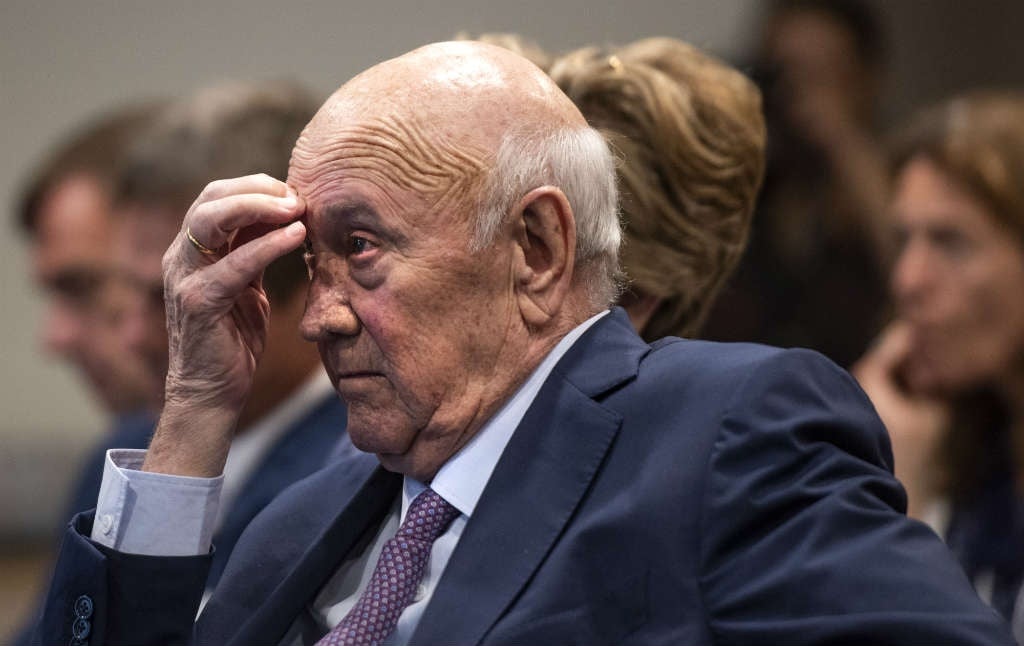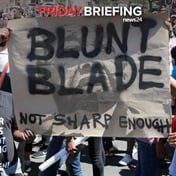
It is about learning to not follow the lead of people like FW De Klerk, for example, by insisting from a place of racialised comfort that "it is time to move on, to stop talking about apartheid", writes Wilhelm Verwoerd
On Thursday afternoon I sat for hours in a small circle with younger black colleagues at the University of Stellenbosch intensely discussing the dire state of our beloved country - the long arms of apartheid, pre-1948 and post-1994; the profound challenge of real reconciliation across persistent racialised divides and growing inequalities.
We also heard from a visiting Rwandan colleague, Dr. Richard Benda, about their remarkably strong identification with the anti-apartheid struggle.
"When I was at school during the 1970s we recited this statement at the beginning of every day: 'Ivangura ry’amoko ribera muri Afrika y’epfo ni ishyano mu bantu!' (The segregation of races taking place in South Africa is a human abomination).
With this mantra ringing in my ears I was even more dismayed by former President De Klerk and his foundation’s most recent, legalistic denial of the depth of systemic racial dehumanisation in South Africa (notwithstanding the issuing of an apology by the FW de Klerk Foundation on Monday).
I vividly remember the disappointment and outrage of Truth and Reconciliation Commission colleagues at this kind of denialism during his appearance at the commission in the mid-1990s.
The TRC's explicit addressing, at the level of international law, of apartheid as a crime against humanity (Vol 1, pp. 94-102) clearly did not have the desired impact - neither on De Klerk, nor on (many of his) former supporters, or their children.
The "magnitude gap" between how those responsible for apartheid look back at that evil system and the grinding lived experience of this "human abomination" continues to haunt South Africa.
De Klerk’s limited historical and moral vision is, tragically, still representative of many from similar backgrounds, as I tried to point out in a recent memoir entitled Verwoerd: My Journey through Family Betrayals (Tafelberg, 2019).
Drawing on my personal journey and my professional experience as a facilitator of (racial) reconciliation with social justice I am acutely concerned that De Klerk’s most recent rejection of apartheid as a crime against humanity continues to be the tip of a rather big, all too white iceberg.
Yet again this kind of statement reminds me of how much "white work" is urgently needed among (many, many) white South Africans.
For me this inter-generational intra-group work is, basically, about stopping to run away from our shared historical responsibility for apartheid as a crime against humanity.
White work is about going beyond a narrow, legalistic focus on specific acts and a highly problematic listing of those (physically) killed in comparison to other conflicts.
It is about resisting the temptation only to point a-historical fingers at our current malaise.
It involves prioritising instead the cultivation of self-critical historical awareness of the systemic, enforced nature of racial segregation and apartheid and the traumatic, ongoing impacts on fellow South Africans' lives.
It includes accepting our multiple forms of implication in systemic racial injustice - as (former) National Party supporters, as bystanders, as beneficiaries (then and now), as descendants, as "perpetuators" of racialised privilege and poverty.
It is about translating this historical awareness into concrete, sustainable restitution.
This kind of white work is not a goal in itself or a "re-centering of whiteness".
It is about learning to not follow the lead of people like FW De Klerk, for example, by insisting from a place of racialised comfort that "it is time to move on, to stop talking about apartheid".
By making a genuine commitment truly to uproot apartheid, white South Africans can reduce the amount of salt we often rub - intentionally and unintentionally - into the festering wounds of those racialised as black, coloured and Indian.
For, leaving aside party political dynamics, the disturbing truth again brought to the surface by the outrage that met former president De Klerk’s continued denialism is this: the healing balm of unqualified, visible acknowledgement of the fundamental, structural dehumanisation of apartheid is still in far too short supply.
Perhaps not only people like former president De Klerk, but also me and my children need to sit for many more hours in deep listening circles with fellow South Africans from different racial backgrounds.
Perhaps we also need to repeat, day after day, with fellow human beings from across this continent and beyond - till it truly sinks into the depths of our individual and collective being - that "the segregation of races [still] taking place in South Africa is a human abomination".
- Wilhelm Verwoerd is Senior Researcher and Facilitator, Studies in Historical Trauma and Transformation at Stellenbosch University. A grandson of apartheid premier Hendrik Verwoerd, he is also the author of Verwoerd: My Journey through Family Betrayals (Tafelberg, 2019).
** Want to respond to the columnist? Send your letter or article to voices@news24.com with your name, profile picture, contact details and location. We encourage a diversity of voices and views in our readers' submissions and reserve the right not to publish any and all submissions received.
Disclaimer: News24 encourages freedom of speech and the expression of diverse views. The views of columnists published on News24 are therefore their own and do not necessarily represent the views of News24.




 Publications
Publications
 Partners
Partners























